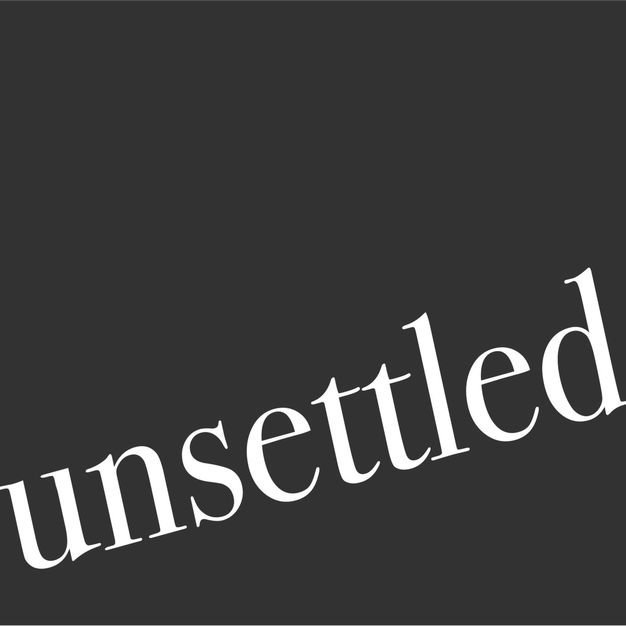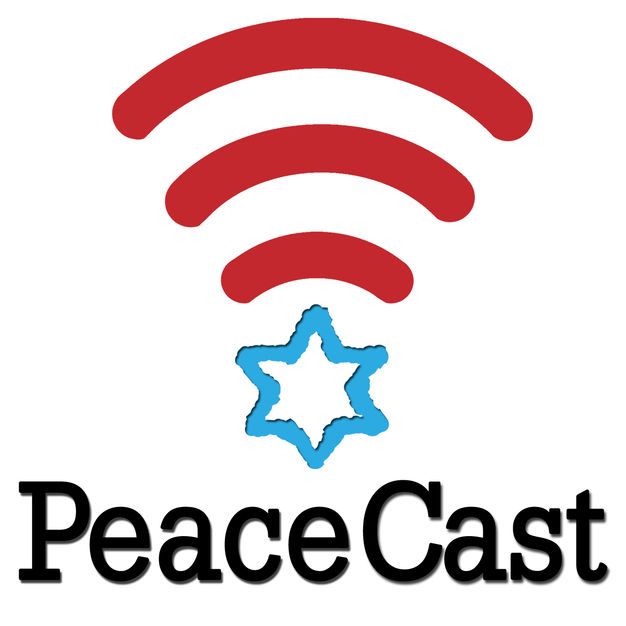
Unsettled
Unsettled Podcast
Unsettled is a new podcast featuring news and views on Israel-Palestine and the Jewish diaspora. We're here to provide a space for the difficult conversations and diverse viewpoints that are all too rare in institutional American Jewish communities.
- 2 minutes 55 secondsAn Ask from Unsettled
Since the small team at Unsettled started producing the show seven and a half years ago, we've published almost 100 episodes — personal stories, expert interviews and reported documentaries.
To keep going in 2025, we need the support of listeners like you. We're participating in a collaborative fundraising campaign to support independent journalism called NewMatch. Now until December 31st, donations of up to $1,000 will be matched, dollar for dollar.
Donate here: https://unsettled.fundjournalism.org/donate/24 December 2024, 1:28 pm - 34 minutes 16 seconds"Ethnic cleansing by a thousand cuts": an update from the South Hebron Hills
In this episode of Unsettled, we hear from Ali Awad, a 26-year-old activist and translator living in Tuba, a village in a region of the west bank called Masafer Yatta in the south Hebron Hills. Ali’s livelihood and wellbeing have always been vulnerable to Israeli settler violence and threats of expulsion by the government. But since October 7th 2023, it's been like nothing he's ever seen. Ali shares about the past few months of restricted movement, violence from settlers, and his efforts to stay in his home.
We also speak to Maya Rosen, an American activist and journalist based in Jerusalem, about settler-soldier militias, and how her activism has changed.
For more Maya and Ali, and for more context on the South Hebron Hills, listen to all of Unsettled's previous reporting on the area, collected in this Spotify playlist.Unsettled is produced by Emily Bell, Max Freedman and Ilana Levinson. Music in this episode from Blue Dot Sessions.
To support the longevity of the show, consider making a donation before the end of the year: https://unsettled.fundjournalism.org/donate/. Donations will allow us to continue creating episodes like this one, and increase the capacity of our team.
3 December 2024, 1:43 pm - 24 minutes 24 secondsMatt Duss: "It is not a war of self-defense. It is a war of choice."
With the one year anniversary of October 7th last Monday, Unsettled followed up with previous guest Matt Duss to ask him about President Biden's approach to foreign policy, military escalations in Lebanon, and what the upcoming U.S. presidential election may mean for the U.S.' policy towards Israel.
Matt is a past president of the Foundation for Middle East Peace, and he was the foreign policy advisor to Senator Bernie Sanders for five years. He is currently the Executive Vice President of the Center for International Policy.
For More:
Matt Duss: "This is not a moment where people are making good policy"
15 October 2024, 11:00 am - 25 minutes 16 secondsRabbi Abby Stein: "There's a long, long road ahead"
It’s currently high holiday season, the holiest time in the Jewish calendar. Rosh Hashanah, was last week and Yom Kippur begins tonight at sundown. The one year anniversary of October 7th fell in between. This year, there's a new resource — a High Holidays directory created by Rabbis for Ceasefire. Since their formation after October 7th, 2023, there are now hundreds of members of Rabbis for Ceasefire. They’ve provided pastoral care to college students participating in encampments, led Jewish ritual at protests and gotten arrested doing civil disobedience. One of their founding members is Rabbi Abby Stein.
In addition to being a Rabbi for Ceasefire, Abby is author who has regularly writes about gender and sexuality. In 2019 she published her memoir, “Becoming Eve: My Journey from Ultra Orthodox Rabbi to Transgender Woman.” Abby is also a member of Jews for Racial and Economic Justice, IfNotNow and the JVP Rabbinical Council. She’s currently part of the clergy team at Kolot Chayeinu in Brooklyn.
Unsettled Producer Emily Bell reached out to Abby to learn more about the Rabbis for Ceasefire High Holidays directory, and how spiritual leaders like her are approaching this sacred time of reflection and interpreting Torah during this confluence of dates.
For More:
Rabbis for Ceasefire
Rabbi Miriam Grossman: "We act and we do not wait for hope"11 October 2024, 12:49 pm - 30 minutes 22 secondsShahd Safi's fight to reclaim hope
On October 31, 2023, Unsettled aired an interview with 22-year-old Shahd Safi, a university student and freelance journalist from Gaza. At the time, she was living in her grandparents house in Rafah, a couple miles away from her own home where she’d evacuated after October 7th. She was living with her siblings and cousins, unable to go to school or even leave the house much.
For the past year, Shahd has had to make impossible calculations in order to survive. By December, her family was running out of their basic needs, waiting on long lines for water at mosques and from UN aid workers. In February, after hearing about a possible Israeli invasion of Rafah, Shahd started to think seriously about leaving Gaza. One year later, her circumstances are very different: she's now is in the U.S., pursuing a bachelor's degree in human rights and written arts. Unsettled has been in touch with Shahd throughout the year, following her journey. In this episode of Unsettled, Producer Ilana Levinson speaks with Shahd about the last year of her life: where she's been, and what she had to do to get where she is now.
10 October 2024, 11:00 am - 31 minutes 46 secondsAsaf Calderon: "The problem as we understand it is Zionism"
Today is October 7th, 2024. One year ago, thousands of militants led by Hamas launched a multi-front attack on Israeli towns and military bases, killing over 1,100 people and abducting over 250. Israel responded to the October 7th attack with one of the most destructive military campaigns in history, displacing most people in the already poverty-stricken, besieged Gaza Strip. To date, Israel has killed at least 41,000 people in Gaza– but experts say the numbers are likely higher, given that Gaza’s healthcare systems have been all-but obliterated, and many bodies remain unidentified, lost under the rubble of what was once Gaza’s homes, schools, and mosques.
The brutality of Israel’s assault on Gaza has mobilized movements around the world to demand a ceasefire, and prompted South Africa bring accusations of Genocide against Israel in the International Court of Justice. Of the remaining hostages in Gaza, many have died, some executed by Hamas militants, some killed by the Israeli Defense Forces.
As we reach the one year anniversary of October 7th, how should we make sense of this day? How should we mark it? Many Israelis and those whose sympathies lie with them will grieve, and make space to remember what was, for many, one of the worst days of their lives. But for thousands of Palestinians – and now Lebanese people, too– they’re still fighting for their survival. how can we stop and remember if the horror persists for so many?
Shortly After October 7th, 2023 Asaf Calderon left the Unsettled team as a producer, and started a new movement of anti-Zionist Israelis living in the United States, called Shoresh. Last week, Unsettled Producer Ilana Levinson sat down with Asaf to talk about creating Shoresh, and how that work has helped him understand the anniversary of October 7th.
7 October 2024, 11:00 am - 1 minute 22 secondsOur Voicemail Is Open
On October 14th, 2023, we set up a voicemail and invited listeners to share their thoughts and feelings with us. We received messages of grief, fear, and anger at the violence in Israel-Palestine. Now, somehow, we’re coming up on a year of atrocities and massacres, and the destruction of countless families and homes. Like many of our listeners, we’ve been thinking about the upcoming anniversary of October 7th.
So we wanted to open up our voicemail again. Send us your thoughts and messages– maybe to people in power, to someone you’re no longer in touch with, or maybe a stranger. You can call in with your name, or stay anonymous. Know that we may use your note in an upcoming episode of Unsettled or on our social media. Leave a message at 347-878-1359.
30 September 2024, 2:55 pm - 31 minutes 51 secondsTareq Baconi: The assassination of Ismail Haniyeh
Last Wednesday on July 31st, Hamas’s top political leader Ismail Haniyeh was killed in Iran. Haniyeh came to the capital city of Tehran for the presidential inauguration when an explosive device went off in the guest house where he was staying. Just hours before, Haniyeh had met with Iranian Supreme Leader Ayatollah Ali Khamenei. Israel hasn’t taken responsibility for the attack, but they're widely believed to be responsible– especially given Israel’s history of targeted political assassinations. Haniyeh’s killing happened one day after Israel killed Hezbollah commander Fuad Shukr in Lebanon.
Haniyeh was killed in the middle of ceasefire negotiations between Hamas and Israel. With the death toll in Gaza nearing 40,000, and the family members of the Israeli hostages desperately calling for a prisoner exchange, the pressure to come to an agreement has been mounting. But Ismail Haniyeh was a chief negotiator in those talks– and now, the chances of arriving at a deal seem further than ever.
Iran has vowed to retaliate against Israel for the attack on their soil. As of Thursday August 8th, that hasn’t happened yet, but many now fear that tensions could lead to a wider regional war.
In this collaboration between Unsettled Podcast and Jewish Currents, Unsettled producer Ilana Levinson interviews Tareq Baconi, author of Hamas Contained: The Rise and Pacification of Palestinian Resistance to make sense of these developments and what Haniyeh’s assassination means for the future.
This episode was a collaboration between On the Nose and Unsettled Podcast. It was produced by Ilana Levinson, with Emily Bell, Arielle Angel, and Alex Kane. Music in this episode from Blue Dot Sessions.Further Reading:
“Hamas Contained: The Rise and Pacification of Palestinian Resistance,” Tareq Baconi
“Hamas: Gaza (Ep 3),” Unsettled Podcast
“Tareq Baconi: ‘There’s no going back’,” Unsettled Podcast
“Regional War: An Explainer,” Alex Kane and Jonathan Shamir, Jewish Currents9 August 2024, 10:30 am - 46 minutes 21 secondsThe Columbia Encampment
On Tuesday April 30th, Columbia University President Minouche Shafik called the New York Police Department to clear the campus of students who had erected an encampment in solidarity with Palestine. Columbia's encampment was one of hundreds of similar campus demonstrations across the United States, many of which were also removed by the police. Unsettled visited Columbia's encampment the week before it was cleared, and spoke to some of those involved about what they hoped to achieve through their protest.
Unsettled is produced by Emily Bell, Max Freedman, and Ilana Levinson, with support from Asaf Calderon. This episode was written and produced by Ilana Levinson. Our theme music is by Nat Rosenzweig. Additional music from Blue Dot Sessions.
17 May 2024, 7:46 pm - 20 minutes 36 seconds'Ayeka': a new song from Aly Halpert
For this episode of Unsettled, we’re doing something we’ve never done before: premiering a new song.
Aly Halpert makes music used in synagogues and Jewish song circles. If you listened to our last episode featuring Rabbi Miriam Grossman, you heard Aly’s tune for the prayer 'Ashrei' as part of a service led by Rabbis for Ceasefire. Today, Aly is releasing a new song called 'Ayeka': the first time she has used her music to directly respond to the violence in Israel-Palestine.
Aly spoke to Unsettled producer Ilana Levinson about her inspiration for 'Ayeka', her writing process, and what she hopes the song will do for listeners.
20 February 2024, 12:00 pm - 30 minutes 26 secondsRabbi Miriam Grossman: “We act and we do not wait for hope”
Since the start of the Israel-Hamas war, grief and rage have brought thousands of people to the streets to demand a ceasefire. One of the many groups that have mobilized in the U.S. is Rabbis for Ceasefire. One of these rabbis is Miriam Grossman, who led until recently the congregation Kolot Chayeinu in Brooklyn, New York.
Unsettled producer Ilana Levinson recently sat down with Rabbi Miriam to ask her what it means to be a rabbi for ceasefire, especially when so many rabbis and other Jewish leaders are standing in lockstep with the state of Israel. Where in Jewish texts and traditions does she find the call to oppose the war? How does she keep going?
Unsettled is produced by Emily Bell, Max Freedman, and Ilana Levinson. Music in this episode from Blue Dot Sessions and Aly Halpert.
13 February 2024, 9:06 pm - More Episodes? Get the App
Your feedback is valuable to us. Should you encounter any bugs, glitches, lack of functionality or other problems, please email us on [email protected] or join Moon.FM Telegram Group where you can talk directly to the dev team who are happy to answer any queries.
 Treyf Podcast
Treyf Podcast
 Israel Policy Pod
Israel Policy Pod
 Kaddish
Kaddish
 PeaceCast
PeaceCast
 Mazel Tov Cocktail
Mazel Tov Cocktail
 The +972 Podcast
The +972 Podcast